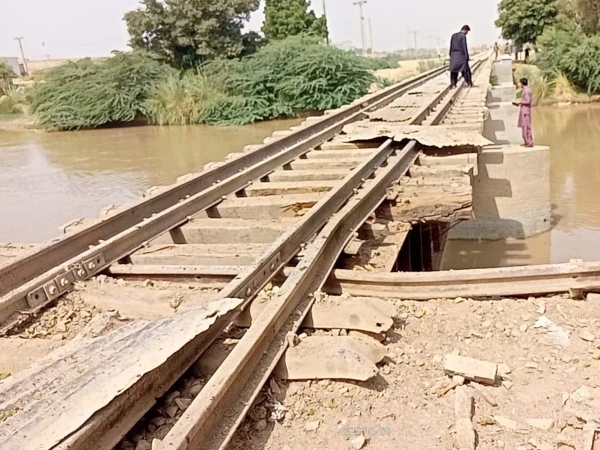Pakistan’s vital railway network, long considered the nation’s economic artery, is currently facing a severe infrastructure crisis. Due to extensive delays in the ML-1 project and a lack of timely maintenance, Pakistan Railways’ track infrastructure has fallen into a state of extreme dilapidation, critically impacting both passenger and freight services.
Information obtained by Express News indicates that the approximately 150 to 200-year-old railway track is severely worn and weak in numerous sections. As a result, delays in train arrivals and departures, spanning anywhere from 7 to 9 hours, have become routine. Train drivers are forced to run trains at a “snail’s pace” to prevent derailments, causing major disruption to the travel experience.
Crippling Speed Restrictions
Across nearly 1,900 kilometers of railway track, approximately 1,100 kilometers are being operated at significantly reduced speeds due to “Engineering Restrictions.” Passenger trains that should be running at their ‘book speed’ of 110 kilometers per hour are now limited to speeds as low as 55 to 78 km/h. Increasing the speed beyond these limits often leads to derailments or accidents. The most severely affected section is the track from Sukkur to Karachi, which is subject to over 100 engineering restrictions.
Railways Management Responds
Addressing the crisis, Chief Executive Railways Aamir Ali Baloch stated that work is currently underway on the track, particularly in the older Sukkur division, where multiple projects, each costing approximately five billion Pakistani Rupees, are in progress. He mentioned that station upgrades in Lahore, Karachi, Faisalabad, and Rawalpindi have been completed, and the administration is actively running trains under Public-Private Partnerships to offer modern amenities and improved catering. However, these infrastructural and operational challenges highlight the ongoing struggle to modernize the system against a backdrop of prolonged neglect.



